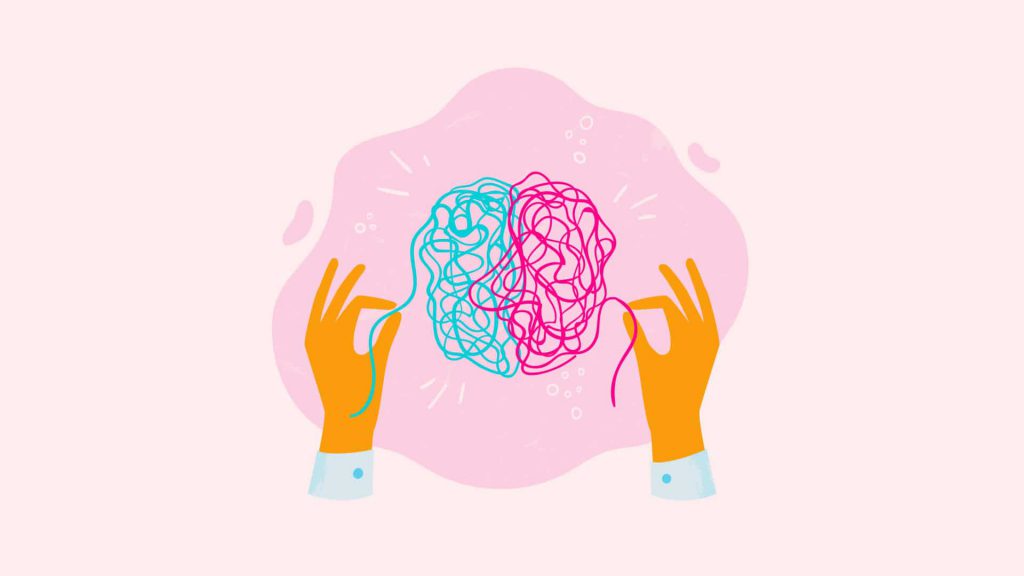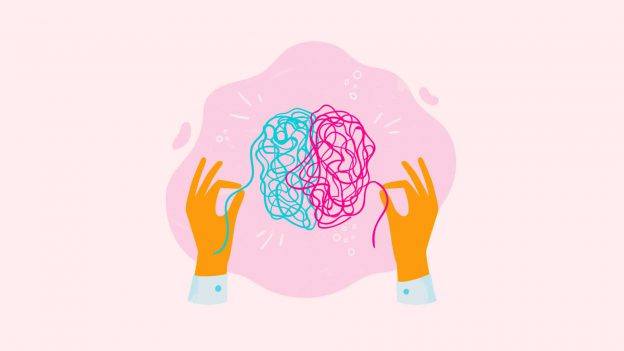Has your addiction left you feeling helpless with no way out? Has your loved one’s addiction made them unrecognizable? We understand what you are experiencing and are here to help! Harmony Ridge Recovery Center’s inpatient rehab for addiction program provides comprehensive care for individuals who are seeking help for their substance dependency. Our remarkable highly structured residential rehab program provides attentive and supportive medical and emotional attention during care while maintaining a calm and serene environment. Inpatient rehab for addiction is perfectly designed for those wishing to overcome their addiction in a longer-term holistic treatment setting. Take a minute to read what you need to know about inpatient rehab for addiction with Harmony Ridge Recovery Center.

What does Inpatient Rehab Mean?
Inpatient rehab is also called residential rehab because you live at the rehab facility. Inpatient rehab can be effective for people with severe problems with drugs or alcohol, and especially people who are dealing with other mental health conditions. Living at the rehab program facility helps you avoid the temptations and influences in your daily life that trigger your substance use. Living in a healthy environment supports your recovery.
Inpatient rehab treatment programs offer a high level of care, which often includes:
- 24-hour supervision and support in a safe environment.
- Time away from your home environment to concentrate on your well-being.
- Behavioral therapies (e.g., individual, family, group).
- Medication-assisted therapy.
- Medically assisted detoxification (detox).
- Services to address any significant social, vocational, and legal issues.
- Access to medical and mental health care services, when needed.
When is Inpatient Rehab for Addiction Necessary?
Choosing to change your relationship with drugs or alcohol is an essential first step toward recovery. But recovery is a process. A process that drug and alcohol rehab programs can help you through.
There are many types of substance use treatments, including detox, therapy, and counseling. These fit into two categories: outpatient and inpatient rehab. Your needs and the severity of your substance use problem will help determine which type of rehab is best for you. Both outpatient and inpatient rehab will help you stop using drugs or alcohol and reduce the risk of using them again after your recovery. One type of rehab is not better or more effective than the other. What’s different about them is the setting and what works best for you and your personal situation.
Preparing For Inpatient Rehab
It’s important to properly prepare for rehab. There’s no set amount of time needed to prepare for treatment. It is important to set an entry date for rehab and to have affairs settled before that date.
Some of the things to take care of before entering rehab include:
- Talking to your employer
- Finding living arrangements for children or other family members
- Planning how to get to and from the rehab center
- Finding out what personal items are allowed
What to Pack for Inpatient Rehab for Addiction
One concern you might have is what to pack for your stay. A quick look at your chosen treatment center’s website can provide you with a basic list of what to bring and what to leave at home, but there are certain items you can bring to make your stay more like home.
- Comfortable Clothes and Sneakers: This one might seem like a no-brainer, but you’d be surprised by the number of people who treat rehab like a fashion show or a night out at the club. Tight, revealing clothes send out the wrong message and can be a major distraction, hindering your ability to get work done. Once you get settled in, chances are you’ll just want to rock sweatpants every day, anyway. Additionally, a lot of treatment centers take you to the gym, and it’s pretty difficult to work out in tight jeans and high heels.
- Paper List of Important Phone Numbers: This is pretty self-explanatory. Odds are you aren’t going to have access to your personal phone to get any numbers out of it that you may need. Before you check in, take a few minutes to jot down your important contacts.
- Alcohol-Free Toiletries:Believe it or not, things like hand sanitizer and hairspray are high on the contraband list. These prohibited items contain denatured alcohol, which is ethyl alcohol before it’s chemically altered.
- More Cigarettes Than You Typically Smoke: If you smoke one pack per day in the outside world, chances are you’ll smoke more in rehab. Even though a large portion of your day will be taken up by group therapy, individual therapy, meetings, and recreational activities, there’s still plenty of downtime. People frequently find themselves outside socializing and smoking when there’s not much going on.
How Our Residential Treatment Program Works
Residential drug and alcohol rehab begins with a full evaluation of each patient’s needs in regards to their specific circumstances. After an evaluation is fully performed, an evidence-based and outcome-focused treatment plan is prepared for each individual. These plans are uniquely created and modified by our licensed and experienced clinical and medical staff. Our patients will receive care and treatment according to these plans throughout their time with us.
Operating under 24-hour medical and clinical supervision, our residential treatment program encompasses a daily schedule for our patients to follow. Each patient will begin their day within their specified living quarters and then be able to head out to our clinical building for their daily treatment to commence.
Each patient is given the opportunity to follow a highly structured individualized program designed to specifically treat the underlying causes that have fueled their addiction. This typically requires individuals to be open about their triggers, environmental stressors, coping mechanisms, or underlying dual diagnosis. By openly communicating and addressing these concerns in a place where safety and security are of the highest priority, the rehabilitation process begins to take shape.
During The Day Inpatient Rehab for Addiction
Throughout the day, during periods of downtime, patients are welcomed and encouraged to enjoy a variety of outdoor activities, take a swim in our indoor pool, or even take some private time to reflect upon the day’s activities, lessons, accomplishments, and words of encouragement.
Since rehabilitation is a unique journey, patients respond to sharing and learning during treatment in different ways. In some cases, patients will take time alone, appreciating the time to reflect silently. Other times, the comfort and support of their peers will be something to look forward to in between therapy or group sharing sessions.
What is the Difference Between Inpatient and Residential Treatment?
Though the concepts of inpatient and residential treatment often overlap, the term inpatient sometimes can reference a more clinically intensive treatment versus residential settings. Both require the person to stay overnight in the facility with monitoring and support, though inpatient efforts may focus more on medically managing detoxification, addressing certain medical issues, and providing services for emotional, behavioral, or mental health conditions.
With this distinction in mind, a period of inpatient detox and medical withdrawal management may be shorter than the full length of stay in ongoing residential treatment. Though treatment times will vary for each individual, such a period of relatively intensive inpatient treatment might be expected to last from a few days to a few weeks. On the other hand, residential care may more commonly last from a few weeks to several months depending on the needs of the individual.
Get the Right Mindset for Success
Early recovery is a time that involves many emotions for many reasons. Withdrawal symptoms, insomnia, major life changes, nutritional deficiencies, facing past traumas, and cravings make early recovery very difficult. The recovering addict is working hard to get sober, but the first couple of months are full of anxiety, fear, anger, sadness, and loss. Recovery is hard work, and it is a choice that must be made and worked toward every single day. Individuals often end up feeling exhausted both mentally and physically as they work toward getting sober and learning healthy ways to cope with negative emotions. However, it is possible to stay positive even on the hard days.
Even those who attend rehab of their own volition will sometimes develop toxic attitudes. They may believe that they’re different from the other patients, and that they don’t really need to bother with all of the counseling, group work, and other therapies. However, this kind of bad mindset leads to unsuccessful recoveries. It’s crucial that addicts approach their recoveries with open minds and positive attitudes.
Inpatient Rehab for Addiction with Harmony Ridge Recovery
Making the decision to incorporate Inpatient Rehab for Addiction on your road to recovery could be the best decision you make for yourself or a loved one today. Following and learning the methods used by so many patients who have achieved and maintained their life with sobriety can make all the difference in how you view your rehabilitation.
Being provided with the care you deserve in a facility like Harmony Ridge, surrounded by the encouragement of trained medical staff as well as a community of your peers, will only add to the quality of life that is on the road ahead. Don’t wait another minute to reach out and get the information you need to become a part of our rehabilitation and recovery community. We look forward to sharing in your recovery journey toward a life of sobriety, giving you the courage to leave addiction behind everyday moving forward. Contact us today.








